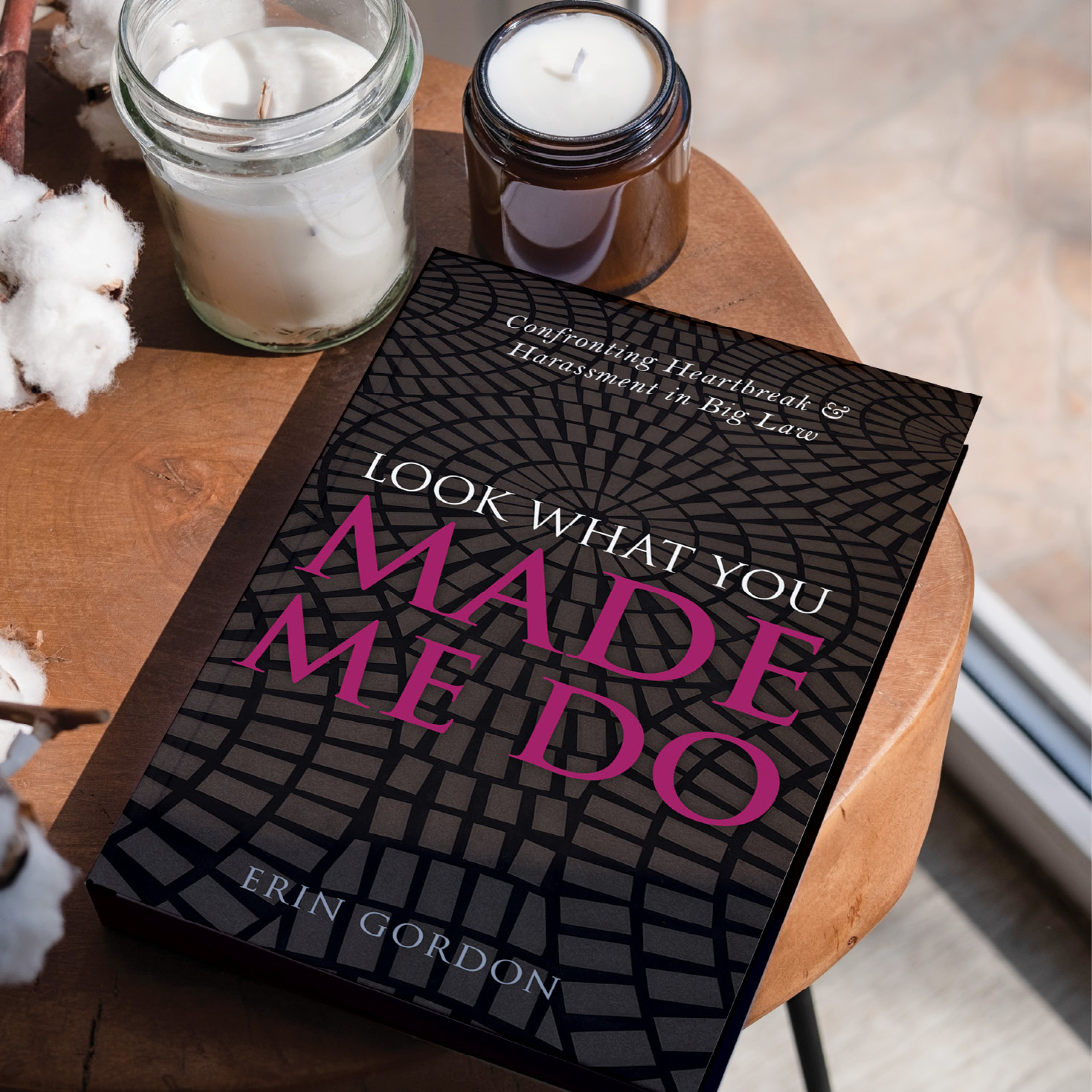Book shares a female associate's experiences with harassment in BigLaw 30 years later

Erin Gordon decided to document her bad associate experience in a book. Photo courtesy of Erin Gordon.
In Look What You Made Me Do: Confronting Heartbreak & Harassment in Big Law, lawyer-turned-author Erin Gordon recounts her alienation as a young associate in the early 1990s—almost 25 years before the #MeToo movement. Armed with documents from her years at the firm, interviews with ex-colleagues and a renewed clarity, Gordon, who self-published the book, reexamines the formative years that led to her departure from law. Names of key players were changed, as was the name of Gordon’s law firm.
You’ve examined your personal experiences before through fiction. What inspired you to keep this book as a nonfiction piece of work?
I did think a lot about fictionalizing this story, but there was a challenge to that, which is some of the events that happened in this book were so shocking I felt like a reader might find it too unbelievable if it was fiction. You know how they say truth is stranger than fiction?
For example, a memo one partner wrote to another about what department I should be in at that firm, which included unbelievable references to my personal life, my romantic life and my sex life. The author of that memo was an employment lawyer. No one would believe that an employment lawyer would be so stupid to write a memo like this.
I just felt that if I put that in a novel, a reader would say, “No, that would never happen.” I call it part memoir, part journalism because I included interviews with more than a dozen former colleagues and experts and also included written materials I’d kept from the time.

In the book, there is a clear contrast between the men having a boys’ club at the firm versus the women not having that. Do you think that might have changed how things played out if you had support from senior women at the firm?
I have a lot of frustration, and maybe even anger, towards the women who were there. There were very few women partners. I do realize that they were dealing with this situation themselves, but I’m aggravated that none of the women partners wanted to extend a hand and even check in on some of the younger female associates. They were trying to keep their practices alive, get clients on their own, probably dealing with maternity leave and their own interactions with a very patriarchal institution. But it was very frustrating. If there had been even one woman I felt I could go and talk to and speak openly to, I absolutely would have.
What was the hardest part of sharing your story and writing this book?
I had really repressed all that pain, and in spending hours on Zoom talking to people who had hurt me and looking at everything from a 2023-2024 lens and seeing how outrageous some of the events were, it was very, very painful. Some interviews were so intense I had to lie down afterward. It was a lot.
That said, the response has been unbelievably supportive and sort of exceeded my wildest expectations. I’m having people write to me on LinkedIn and emailing me telling me how healing this story was for them. And that makes all of the intensity and pain worthwhile.
What do you hope readers take away from your book?
I think we all tend to look back on difficult times and focus on our part, and [think] maybe it was our fault. There’s that negativity bias where we don’t examine things neutrally. Once I decided to do that, approaching my own story as a journalist, I realized there was another way of looking at the situation that didn’t involve me being a terrible lawyer or an awful employee at BigLaw. So we can kind of reexamine the stories we tell ourselves. And just be mindful of your impact.
One of the themes I hope to get across in this book is that this was not quid pro quo sexual harassment or one striking event. This was a series over months of microharassments that maybe in and of themselves don’t seem like that big of a deal, but over time and cumulatively, they are so incredibly damaging. So whether it’s people who’ve experienced it or maybe people who’ve participated in this kind of behavior in the workplace, realizing the impact of this kind of thing.
This story was originally published in the August-September 2024 issue of the ABA Journal under the headline: “Painful Memories: Book shares a female associate’s experiences and interviews with former colleagues 30 years later.”



